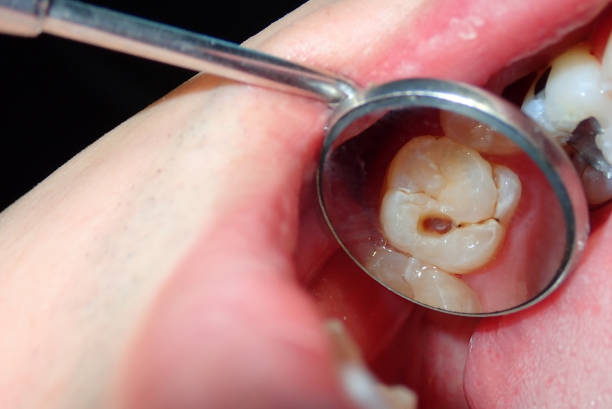
The Importance of Dental Fillings for Cavity Prevention
Maintaining optimal oral health goes beyond regular brushing and flossing. Dental fillings play a crucial role in preventing cavities from progressing and causing further damage to your teeth. Understanding the significance of dental fillings can help you make informed decisions about your oral care and ensure a lifetime of healthy smiles.
What Are Dental Fillings?
Dental fillings are restorative materials used to repair teeth that have been damaged by cavities or decay. When plaque, bacteria, and acids erode the protective enamel of your teeth, small holes or cavities can form. Left untreated, cavities can deepen and compromise the structural integrity of the tooth. Dental fillings are applied to restore the tooth’s shape, function, and strength, preventing further decay and potential tooth loss.
The Importance of Dental Fillings for Cavity Prevention
1. Halting Decay Progression
When a cavity is detected in its early stages, a dental filling can halt its progression. The decayed portion of the tooth is removed, and the filling material is applied to seal the cavity and prevent bacteria from further damaging the tooth’s structure. This intervention helps preserve the health of the tooth and surrounding tissues.
2. Preventing Tooth Sensitivity
Cavities can lead to increased tooth sensitivity, making it uncomfortable to consume hot, cold, sweet, or acidic foods and beverages. Dental fillings not only address the decay but also alleviate sensitivity, allowing you to enjoy your favorite foods without discomfort.
3. Restoring Functionality
Cavities can weaken teeth and affect their ability to function properly. Dental fillings restore the tooth’s functionality, enabling you to chew, bite, and speak naturally. This is particularly important for maintaining proper nutrition and overall well-being.
4. Preserving Tooth Structure
By treating cavities promptly with dental fillings, you preserve more of your natural tooth structure. This minimizes the need for more extensive treatments, such as dental crowns or root canals, which may be necessary if decay is allowed to progress.
5. Enhancing Aesthetics
Modern dental fillings are available in various materials, including tooth-colored options that blend seamlessly with your natural teeth. This ensures that your smile remains aesthetically pleasing, even after cavity treatment.
6. Long-Term Oral Health
Addressing cavities with dental fillings contributes to your long-term oral health. By preventing the spread of decay and maintaining the integrity of your teeth, you reduce the risk of further complications and the need for more invasive and costly treatments down the line.
Caring for Your Dental Fillings
While dental fillings are durable and long-lasting, they require proper care to ensure their longevity:
- Oral Hygiene: Continue to practice good oral hygiene by brushing and flossing regularly to prevent the formation of new cavities around existing fillings.
- Regular Dental Check-ups: Schedule routine dental visits for professional cleanings and examinations. Your dentist can monitor the condition of your fillings and detect any potential issues early on.
- Avoid Excessive Force: Be mindful of habits like teeth grinding or using your teeth as tools, as these actions can potentially damage your fillings.
Conclusion
Dental fillings are a vital tool in the fight against cavities and the preservation of your oral health. By addressing cavities promptly with fillings, you protect your teeth from further decay, enhance your smile’s functionality, and ensure a brighter and healthier future for your teeth.
Leave a reply
